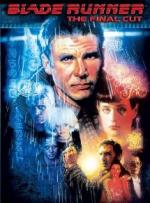|
This section contains 4,743 words (approx. 16 pages at 300 words per page) |

|
SOURCE: Gray, W. Russel. “Entropy, Energy, Empathy: Blade Runner and Detective Fiction.” In Retrofitting “Blade Runner”: Issues in Ridley Scott's “Blade Runner” and Philip K. Dick's “Do Androids Dream of Electric Sheep?,” edited by Judith B. Kerman, pp. 53-65. Bowling Green, Ohio: Bowling Green State University Popular Press, 1991.
In the following essay, Gray notes that the plot of Blade Runner finds its origins in the hard-boiled detective fiction of the 1940s, asserting that the film is both energized by the traditions of, and contributes to the revitalization of, the detective genre.
“You don't get anything for nothing, Sweetheart.” So might Sam Spade state the First Law of Energy. Spade's world-weary successor, Philip Marlowe, could add “You can't even break even,” a hard-boiled formulation of the Second Law (a.k.a. Entropy). Ridley Scott's Blade Runner suggests that the twenty-first century private detective may resemble Rick Deckard, a run-down...
|
This section contains 4,743 words (approx. 16 pages at 300 words per page) |

|


